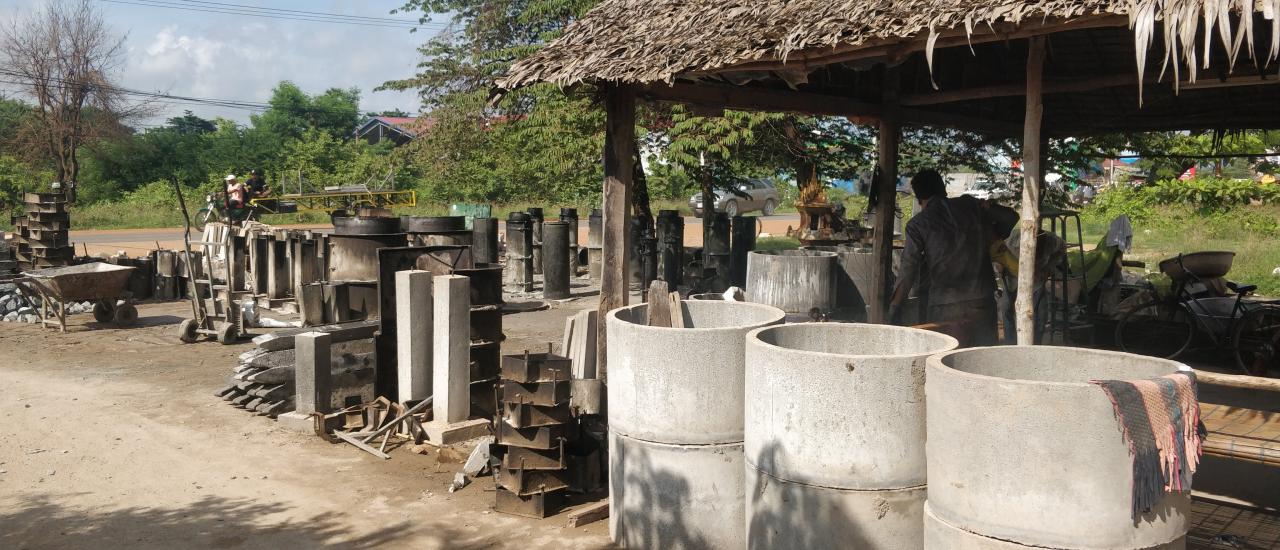Sanitation Enterprise Viability and Sustainability Toolkits
Market-based sanitation (MBS)—through which private sector actors sell toilets and related services to individual households—is a promising approach to deliver onsite sanitation products and services to low-income populations. The viability and sustainability of sanitation enterprises is a critical scaling barrier, among several others identified in a USAID MBS desk review.
Many MBS program implementers do not track their financial performance beyond sales. They need to understand the factors influencing the viability and sustainability of enterprises to recruit entrepreneurs and help them grow their enterprises. While MBS programs typically share information such as the market potential and product system design, they often struggle to discuss projected revenue and profit, which is of primary interest to entrepreneurs.
WASHPaLS developed guidance for practitioners and two toolkits to address these gaps based on methodologies used to analyze sanitation enterprise performance in three countries — Cambodia, India, and Nigeria.
Sanitation Enterprise Recruitment Toolkit
The recruitment toolkit helps MBS program implementers understand how to develop revenue, profit, and financial return projections with potential entrepreneurs. It is primarily useful for early-stage MBS programs that want to:
- Assess the profit generation potential and the financial returns of sanitation enterprise models and iterate if necessary
- Recruit entrepreneurs to set up sanitation enterprises by helping them understand the financial opportunity
For more details, refer to the Introduction to the Enterprise Recruitment Toolkit, also available in the toolkit.
Enterprise Viability and Sustainability (EVS) Diagnostic Toolkit
The EVS toolkit helps MBS program implementers diagnose the factors that differentiate the performance of enterprises at different levels of profits. This toolkit is designed for MBS programs at different stages of the program lifecycle. The toolkit can help meet several program objectives such as:
- Establish base-line, mid-line, end-line performance beyond sales volumes
- Generate insights on factors influencing viability and sustainability in programs’ operating contexts and craft performance improvement strategies
- Identify low-performing enterprises in need of improvement to reduce attrition and/or strong performers who can further grow with additional support
- Assess the sustainability of enterprises without program or other subsidized support to develop exit strategies for the program
The entire toolkit consists of four modules that MBS programs can execute sequentially but you may also choose modules using the chart below depending on your objectives, existing data on partner enterprises, and available resources. Refer to Introduction to the EVST, also available in the toolkit, or the guidance below for more details.
Explore modules by phase by clicking on the white boxes below:
Analytic activities
Analytic activities
Analytic activities
Analytic activities
Note: Adaptation guidelines and interview guides are supplementary materials that are referenced in the introduction and in different modules of the toolkit.
Guidance: Selecting modules for different program situations
The prioritization of modules can also be decided by five simplified illustrative situations of MBS programs leading to a variety of objectives. Select from the briefs below based on the program stage, i.e., number of years since the start of the MBS program:
- 0-2 years since inception - Brief – Nascent-stage program
- 2-3 years since inception - Brief – Mid-stage Struggling and Brief – Mid-stage Thriving
- 4-6 years since inception - Brief – Late-stage Struggling and Brief – Late-stage Thriving
Additional resources for implementers and donors/funders
Implementers of MBS programs may seek consultancy services from a vendor to conduct assessments, develop enterprise performance monitoring, or assist with the toolkit implementation. WASHPaLS developed a sample Terms of Reference (ToR) template as a reference for implementers to draft ToRs based on their objectives and requirements.
Donors and funders of MBS programs are well-positioned to encourage activities to improve enterprise viability and sustainability in sanitation programming. Designing Request for Proposals (RFPs) for MBS programs to include such activities is a lever available for donors and funders. WASHPaLS developed a sample template for donors/funders to customize and incorporate requirements in RFPs for new MBS programs


